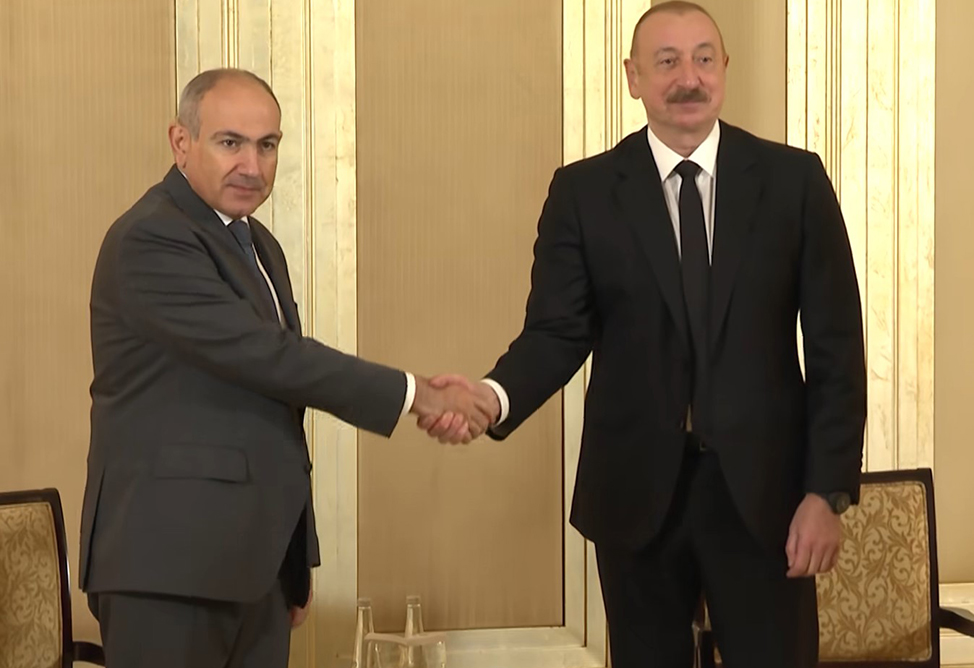Nalbandian explains his dubious statement on cession of territories in Karabakh conflict zone
28.09.2017,
11:37
Edward Nalbandian, Armenian foreign minister, explaining the controversial statement he made on September 18 at Armenia-Diaspora Forum about cession of Karabakh territories, said Wednesday at a news conference the following:

YEREVAN, September 28. /ARKA/. Edward Nalbandian, Armenian foreign minister, explaining the controversial statement he made on September 18 at Armenia-Diaspora Forum about cession of Karabakh territories, said Wednesday at a news conference the following:
“Don’t think that we can naively take somebody’s words and give something for nothing. Speaking about return, I said I meant the territories which in terms of security will not pose threat to Karabakh and the problem solution.”
He said that some comments were taken out of the context. “I didn’t speak about particular territories or separate issues – I just presented general principles of the [OSCE Minsk Group - ARKA] co-chairs’ statements, who pointed out three well-known principles and six settlement elements.”
The minister stressed that the co-chairs’ all proposals should be considered in a single package – otherwise, settlement will be impossible.
The most important aspects are Artsakh’s status and security guarantees, he said, and if they are solved, the remaining things, including multifactor security guarantees, derive from it.
Nalbandian said that the Armenian side remains stuck to the policy it pursued before and its approaches are in tune with the OSCE Minsk Group co-chairs’ statements and proposals, which have been taken as a basis for settling the Karabakh conflict and to which Azerbaijan is constantly opposed.
Karabakh conflict broke out in 1988 when Karabakh, mainly populated by Armenians, declared its independence from Azerbaijan.
On December 10, 1991, a few days after the collapse of the Soviet Union, a referendum took place in Nagorno-Karabakh, and the majority of the population (99.89%) voted for secession from Azerbaijan.
Afterwards, large-scale military operations began. As a result, Azerbaijan lost control over Nagorno-Karabakh and the seven regions adjacent to it.
Some 30,000 people were killed in this war and about one million people fled their homes.
On May 12, 1994, the Bishkek cease-fire agreement put an end to the military operations.
Тalks brokered by OSCE Minsk Group are being held over peaceful settlement of the conflict. The group is co-chaired by USA, Russia and France. --0-----
“Don’t think that we can naively take somebody’s words and give something for nothing. Speaking about return, I said I meant the territories which in terms of security will not pose threat to Karabakh and the problem solution.”
He said that some comments were taken out of the context. “I didn’t speak about particular territories or separate issues – I just presented general principles of the [OSCE Minsk Group - ARKA] co-chairs’ statements, who pointed out three well-known principles and six settlement elements.”
The minister stressed that the co-chairs’ all proposals should be considered in a single package – otherwise, settlement will be impossible.
The most important aspects are Artsakh’s status and security guarantees, he said, and if they are solved, the remaining things, including multifactor security guarantees, derive from it.
Nalbandian said that the Armenian side remains stuck to the policy it pursued before and its approaches are in tune with the OSCE Minsk Group co-chairs’ statements and proposals, which have been taken as a basis for settling the Karabakh conflict and to which Azerbaijan is constantly opposed.
Karabakh conflict broke out in 1988 when Karabakh, mainly populated by Armenians, declared its independence from Azerbaijan.
On December 10, 1991, a few days after the collapse of the Soviet Union, a referendum took place in Nagorno-Karabakh, and the majority of the population (99.89%) voted for secession from Azerbaijan.
Afterwards, large-scale military operations began. As a result, Azerbaijan lost control over Nagorno-Karabakh and the seven regions adjacent to it.
Some 30,000 people were killed in this war and about one million people fled their homes.
On May 12, 1994, the Bishkek cease-fire agreement put an end to the military operations.
Тalks brokered by OSCE Minsk Group are being held over peaceful settlement of the conflict. The group is co-chaired by USA, Russia and France. --0-----



